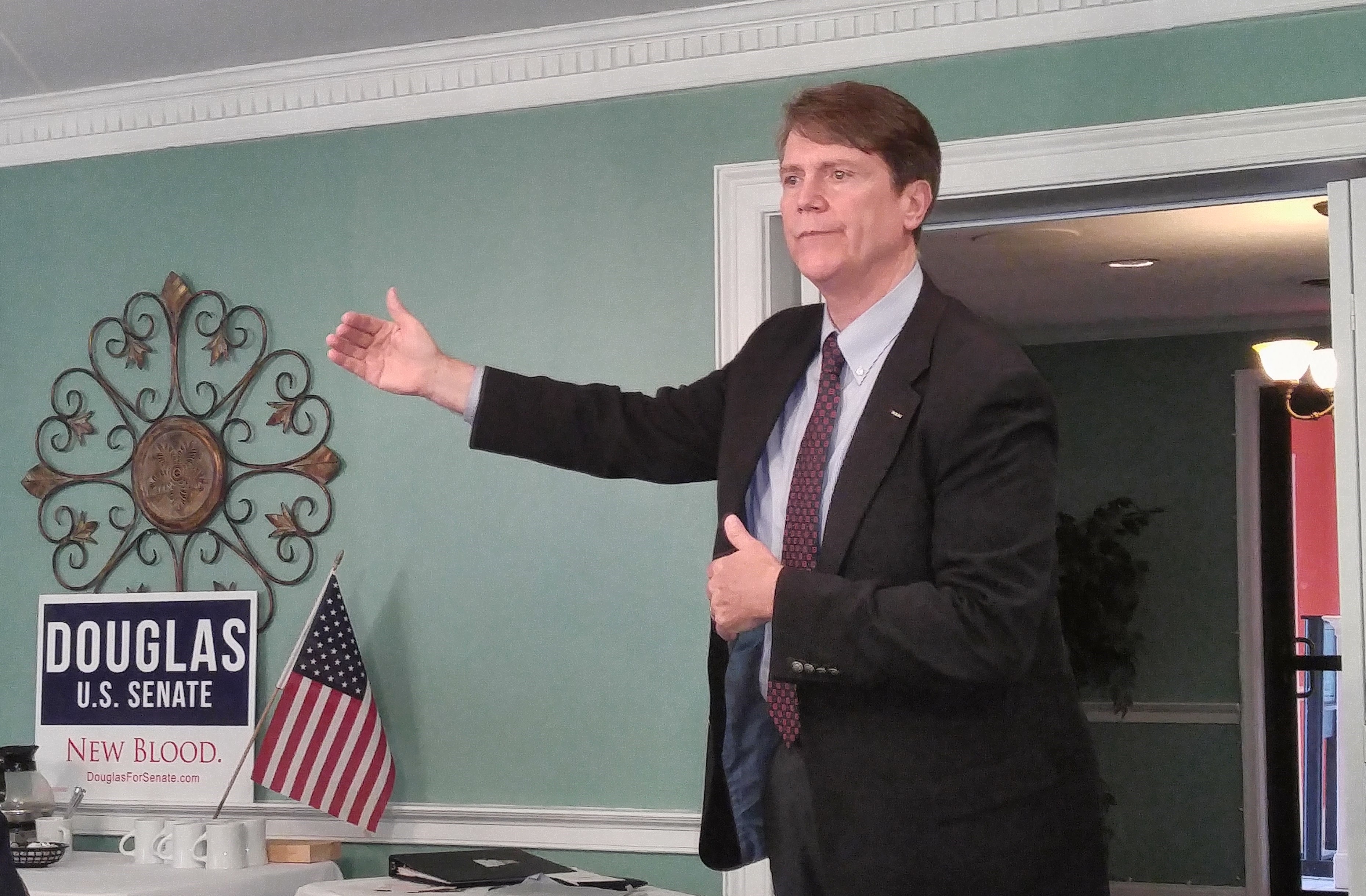Commentary by Marita Noon
Friday, April 22, will mark the 47th Earth Day. You may think it is all about planting trees and cleaning up neighborhoods. But this year’s anniversary will be closer to its radical roots than, perhaps, any other since its founding in 1970. Considered the birth of the environmental movement, the first Earth Day took place during the height of America’s counterculture era. According to EarthDay.org, it gave voice to an “emerging consciousness, channeling the energy of the anti-war protest movement and putting environmental concerns on the front page.”
We did need to clean up our act. At that time “littering” wasn’t part of our vocabulary, The air in the Southern California valley where I grew up was often so thick with smog we couldn’t see the surrounding mountains.
Thankfully, that has changed.
Look around your community. You’ll likely see green trees, blue skies, and bodies of water sparkling in the sunshine. With the success of the environmental movement, its supporters, and the nonprofit groups it spawned, had to become ever more radical to stay relevant.
Environmentalism has changed.
The morphing of the movement may be most evident in Earth Day 2016 – which some are calling “the most important Earth Day in history.”
This year, on April 22, in a high-level celebration at the United Nations headquarters in New York, the Paris Climate Agreement will officially be signed. Thirty days after its signing by at least 55 countries that represent 55 percent of global greenhouse gas emissions, the agreement will take effect – committing countries to establishing individual targets for emission reductions with the expectation that they will be reviewed and updated every five years.
While news reports of Earth Day 2016 will likely depict dancing in the streets, those who can look past the headlines will see a dire picture – one in which more than 10 percent of a household’s income is spent on energy costs; one of “green energy poverty.”
To meet the non-binding commitments President Obama made last December in Paris, he is counting on, among many domestic regulations, the Clean Power Plan (CPP).
Last week, on the Senate floor, Senator Jim Inhofe (R-OK), chairman of the Senate Environment and Public Works Committee, delivered remarks in advance of Earth Day on the unattainability of the U.S. climate commitments. He said: “The Clean Power Plan is the centerpiece of the president’s promise to the international community that the U.S. will cut greenhouse gas emissions by 26 to 28 percent.” It would “cause double digit electricity price increases in 40 states” and “would prevent struggling communities from accessing reliable and affordable fuel sources, which could eventually lead to poor families choosing between putting healthy food on the table or turning their heater on in the winter.”
The Heritage Foundation has just released a report on the devastating economic costs of the Paris Climate Agreement, which it calls “a push for un-development for the industrialized world and a major obstacle for growth for the developing world.” Because global warming regulations “stifle the use of the most efficient and inexpensive forms of electricity, businesses as well as households will incur higher electricity costs.” The report concludes: “restricting energy production to meet targets like those of the Paris agreement will significantly harm the U.S. economy. Bureaucratically administered mandates, taxes, and special interest subsidies will drive family incomes down by thousands of dollars per year, drive up energy costs, and eliminate hundreds of thousands of jobs. All of these costs would be incurred to achieve only trivial and theoretical impacts on global warming.”
Real world experience bears out the both Inhofe’s observations and the Heritage Foundation’s conclusions.
Germany is one of the best examples of green energy poverty as the country has some of the most aggressive greenhouse gas reduction programs that offer generous subsidies for any company producing green energy. Based on an extensive study done by green energy believers in 2014, I addressed the program’s overall result: raised costs and raised emissions. I stated: “After reading the entire 80-page white paper, I was struck with three distinct observations. The German experiment has raised energy costs to households and business, the subsidies are unsustainable, and, as a result, without intervention, the energy supply is unstable.” At that time, I concluded: “The high prices disproportionately hurt the poor, giving birth to the new phrase: ‘energy poverty.'”
More recently, others have come to the same conclusion (read here and here). On April 13, the Wall Street Journal (WSJ) opined: “Germany’s 16-year-old Energiewende, or energy transformation, already has wrecked the country’s energy market in its quest to wean the economy off fossil fuels and nuclear power. Traditional power plants, including those that burn cleaner gas, have been closing left and right while soaring electricity prices push industries overseas and bankrupt households. Job losses run to the tens of thousands.” Meanwhile, emissions over the past seven years have increased. Last month, Mike Shellenberger, President, Environmental Progress and Time magazine “Hero of the Environment,” tweeted: “people really want to believe good things about Germany’s energy shift, but … its emissions rose.” WSJ concludes: “The market distortions caused by overreliance on expensive but undependable power already have pushed German utilities to rely more on cheap and dirty coal-fired power plants to make up the shortfall when renewable sources can’t meet demand.”
Germany is not alone.
The U.K., according to Reuters, is facing “fuel poverty.” The report states: “The government is also under pressure to curb rising energy bills with 2.3 million of Britain’s 27 million households deemed fuel poor, meaning the cost of heating their homes leaves them with income below the poverty line.” Another account covers the U.K.’s cuts to solar subsidies, saying: “The government says the changes were necessary to protect bill payers, as the solar incentives are levied on household energy bills.”
The Netherlands, which is already behind in meeting its green energy targets, has, according to the Washington Post, had to build three new coal-fueled power plants – in part, at least, to power the high percentage of electric cars. Additionally, the country has hundreds of wind turbines that are operating at a loss and are in danger of being demolished. A report states: “Subsidies for generating wind energy are in many cases no longer cost-effective. Smaller, older windmills in particular are running at a loss, but even newer mills are struggling to be profitable with insufficient subsidies.”
Bringing it closer to home, there is über-green California – where billionaire activist Tom Steyer aggressively pushes green energy policies. Headlines tout California has the most expensive market for retail gasoline nationwide. But, according to the Institute for Energy Research, it also has some of the highest electricity prices in the country – “about 40 percent higher than the national average.” A 2012 report from the Manhattan Institute, states that about one million California households were living in “energy poverty”- with Latinos and African Americans being the hardest hit. With the Golden State’s headlong rush toward lower carbon-dioxide emissions and greater use of renewables, the energy poverty figure is surely much higher today.
This week, as you hear commentators celebrate “the most important Earth Day in history” and the global significance of the signing of the Paris Climate Agreement, remember the result of policies similar to CPP: green energy poverty. Use these stories (there are many more) to talk to your friends. Make this “Green Energy Poverty Week” and share it: #GEPW.
We, however, do not need to be doomed to green energy poverty. There is some good news.
First, the Paris Climate Agreement is non-binding. Even Todd Stern, U.S. climate envoy, acknowledged in the Huffington Post: “What Paris does is put in place a structure that will encourage countries to increase their targets every five years.” While the requisite number of countries will likely sign it before the election of the next president, the only enforcement mechanism is political shaming. Even if it was legally binding, as was the Koyto Protocol, Reason Magazine points out what happened to countries, like Canada and Japan, which “violated their solemn treaty obligations” – NOTHING. The Heritage report adds: “History, however, gives little confidence that such compliance will even occur. For instance, China is building 350 coal-fired power plants, and has plans for another 800.”
Then there is the legal delay to the implementation of the CPP – which, thanks to a Supreme Court decision earlier this year, will be tied up in courts for at least the next two years. Inhofe stated: “Without the central component of (Obama’s) international climate agenda, achieving the promises made in Paris are mere pipe dreams.”
“President Obama’s climate pledge is unobtainable and it stands no chance of succeeding in the United States,” Inhofe said. “For the sake of the economic well-being of America, that’s a good thing.”
The author of Energy Freedom, Marita Noon serves as the executive director for Energy Makes America Great Inc., and the companion educational organization, the Citizens’ Alliance for Responsible Energy (CARE). She hosts a weekly radio program: America’s Voice for Energy—which expands on the content of her weekly column. Follow her @EnergyRabbit.


 The Magic Lightnin’ Boys hail from Cincinnati, Ohio, which immediately tells me a lot about the band since I spent four of my most formative years in that area. For people of the Midwest like me, Cincinnati is the gateway to the South where these regions converge like the pasta, cheese, and onions added to the chili base of Cincinnati chili.
The Magic Lightnin’ Boys hail from Cincinnati, Ohio, which immediately tells me a lot about the band since I spent four of my most formative years in that area. For people of the Midwest like me, Cincinnati is the gateway to the South where these regions converge like the pasta, cheese, and onions added to the chili base of Cincinnati chili.


